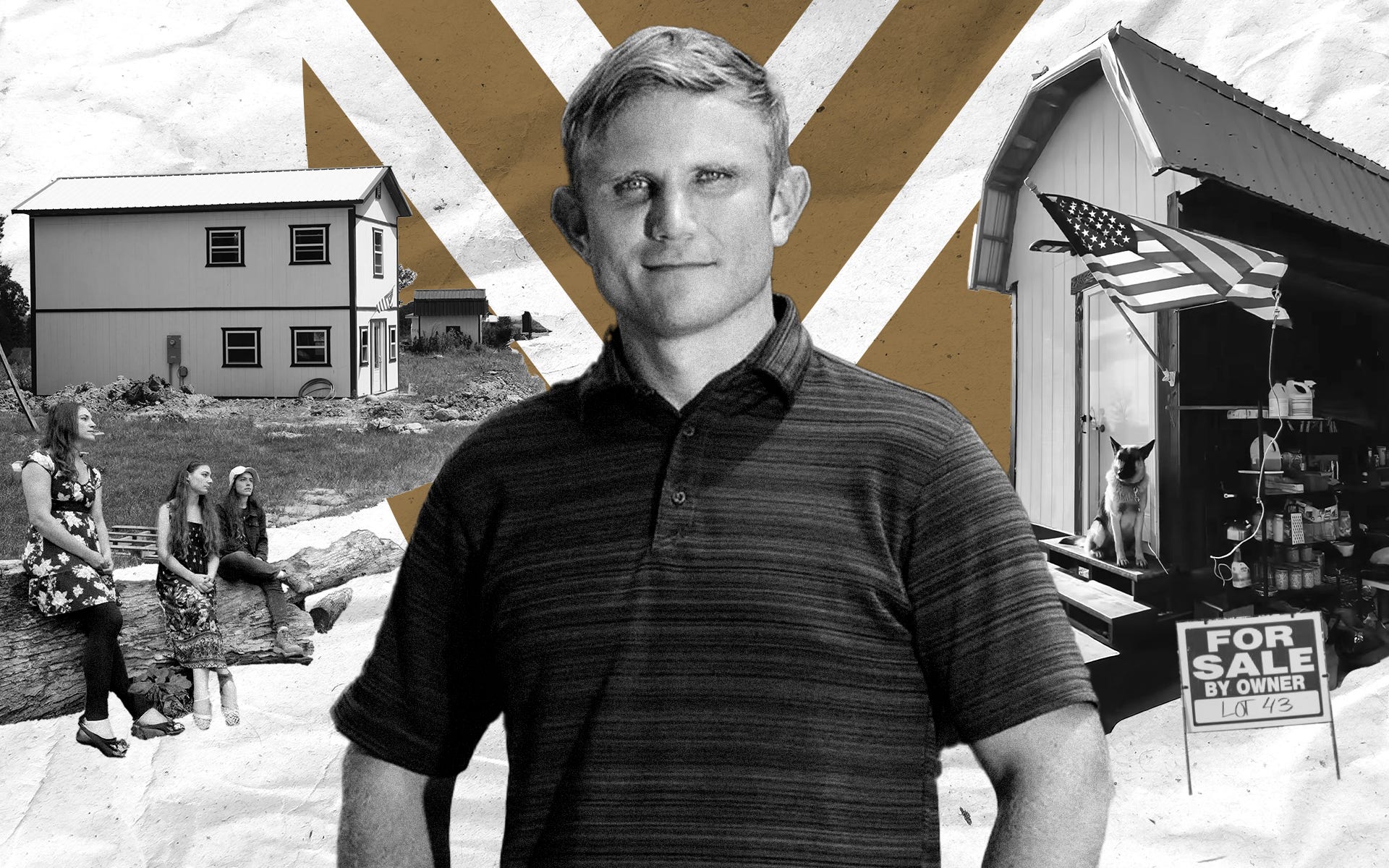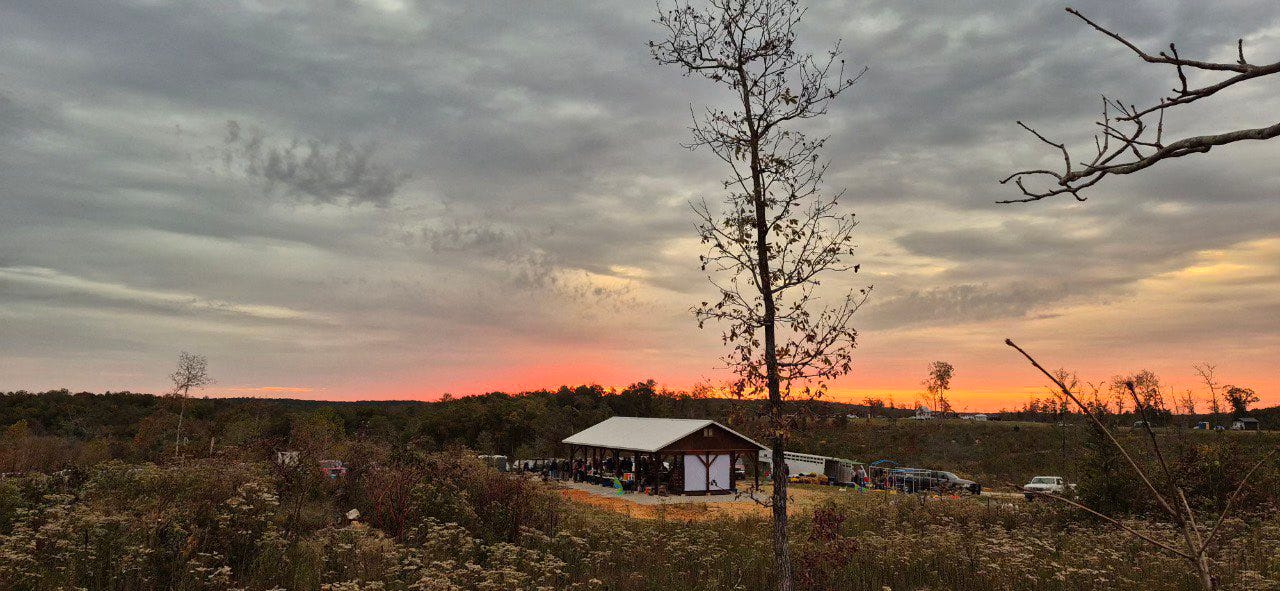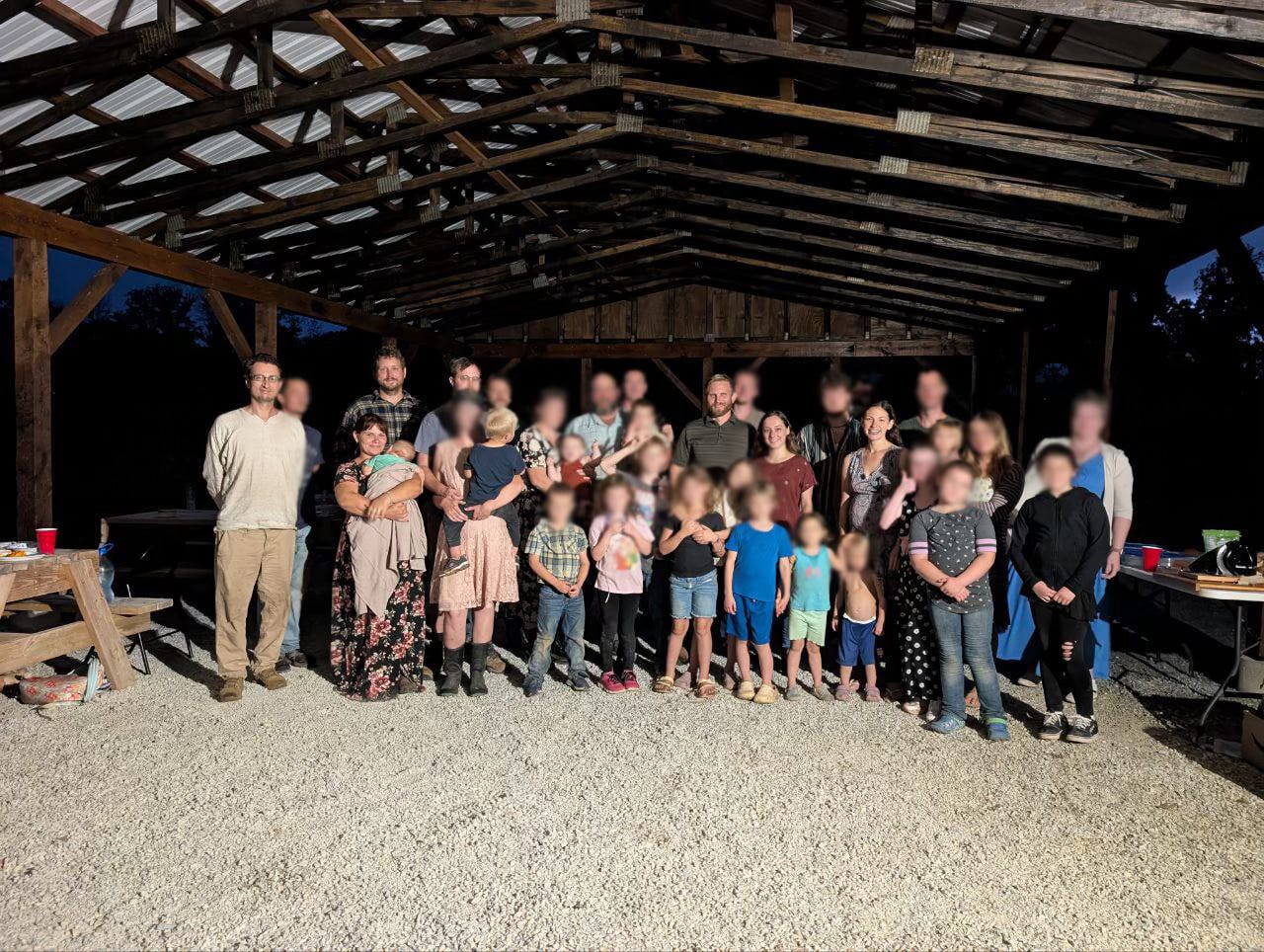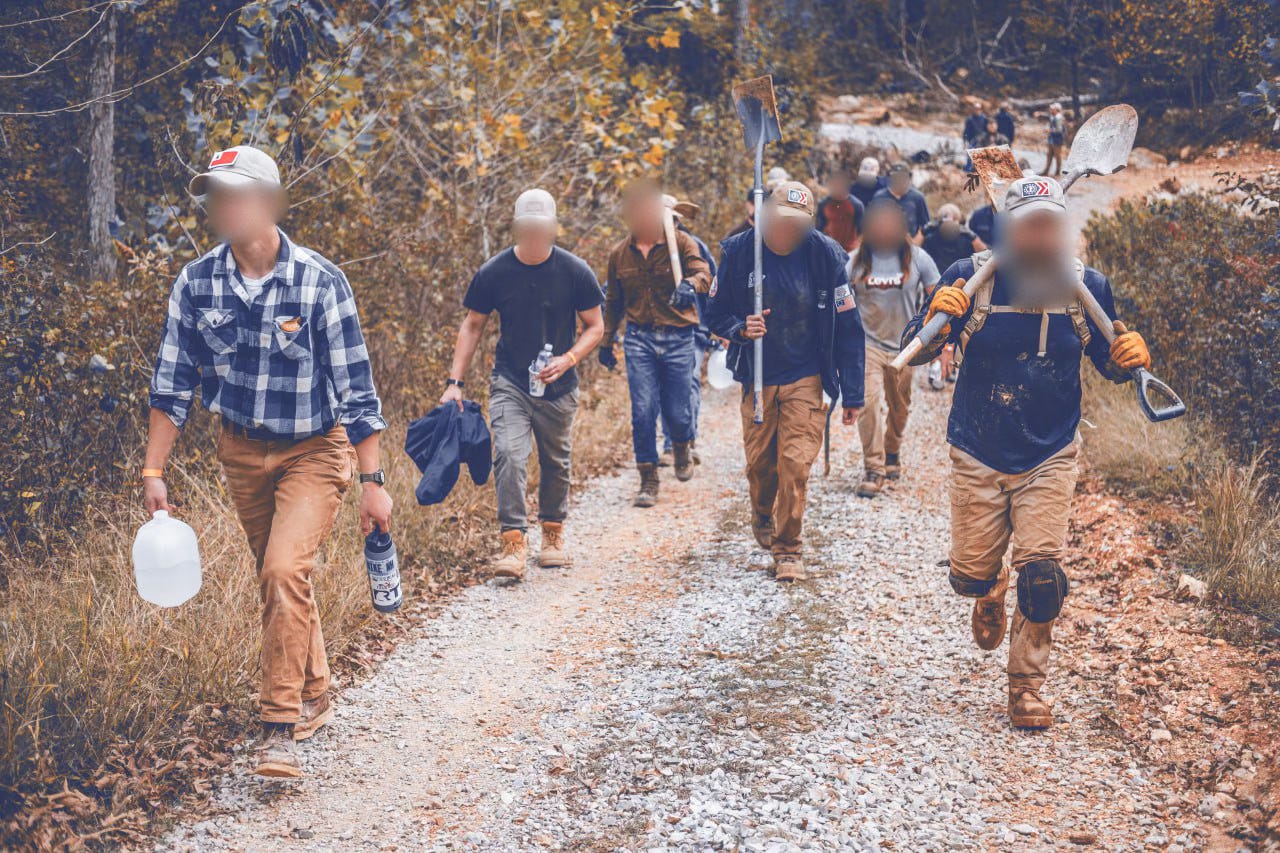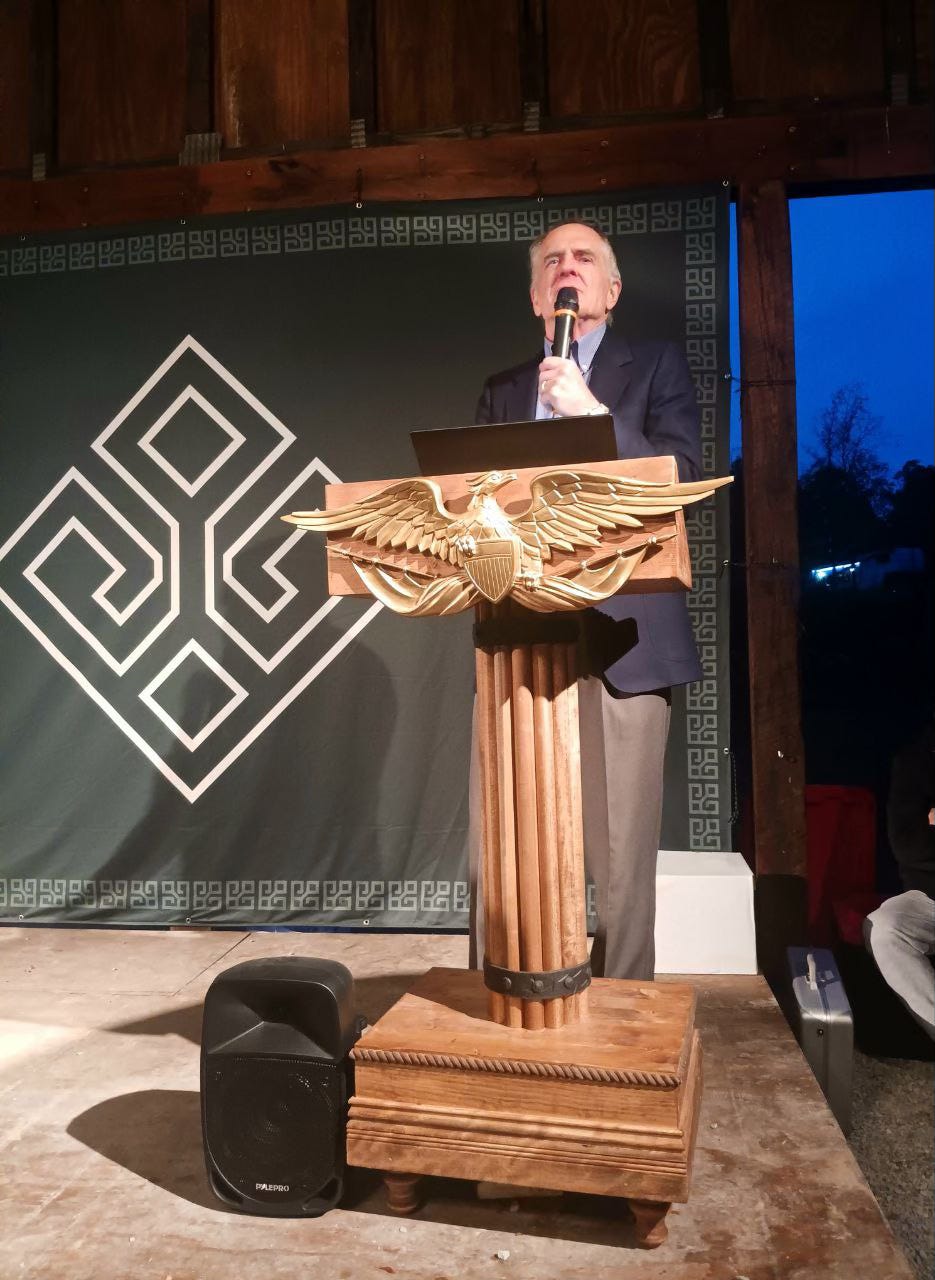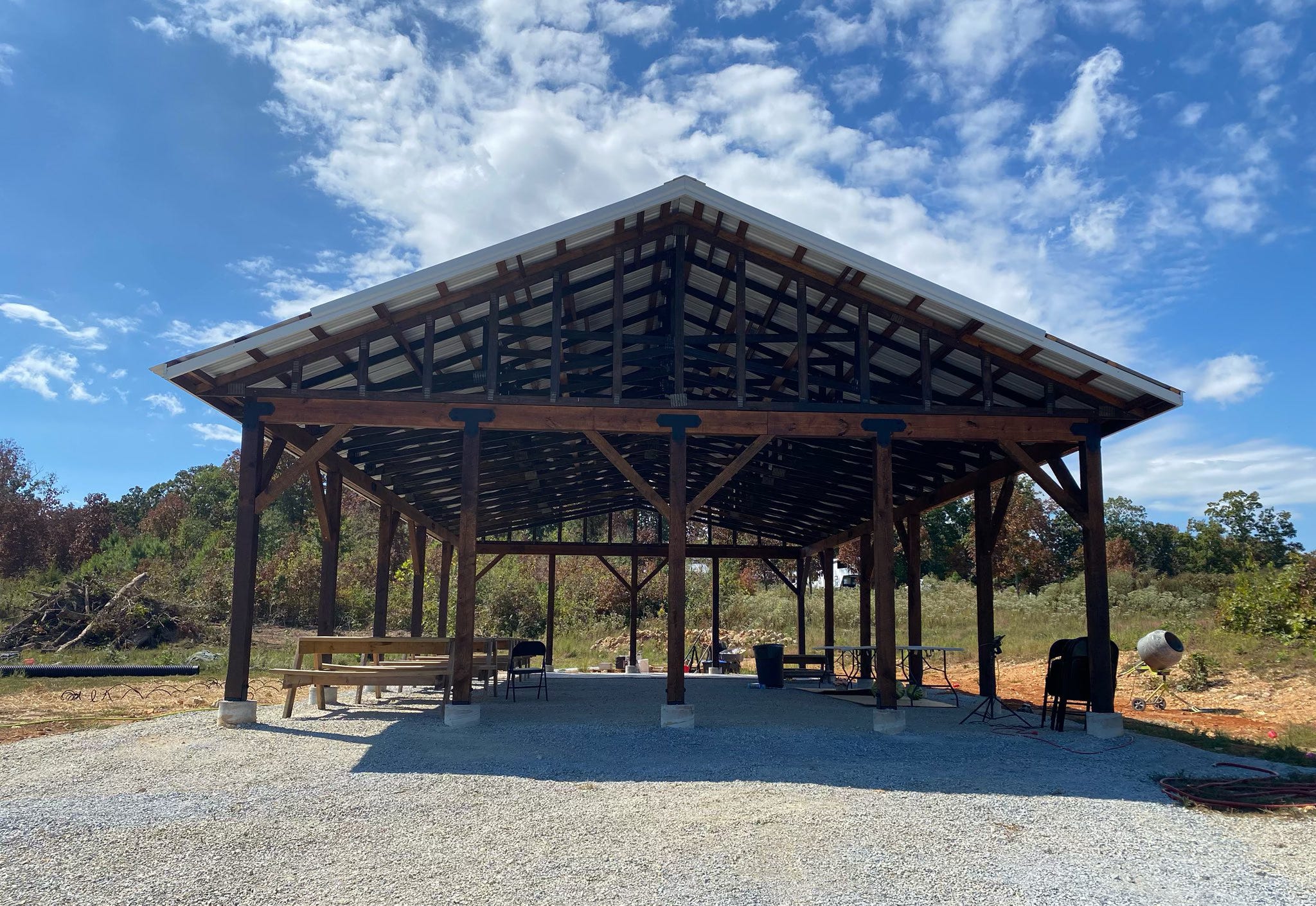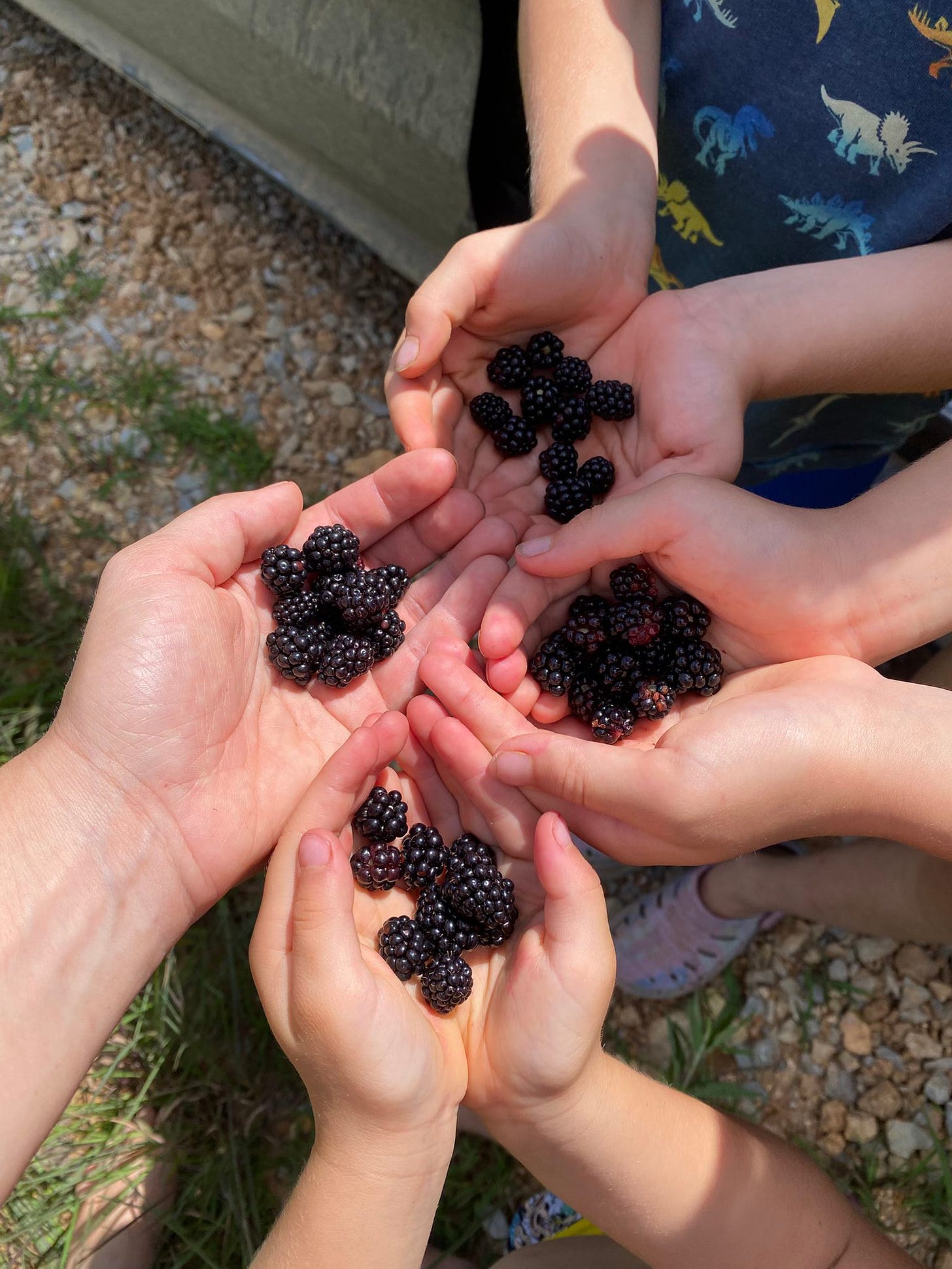Interview with Eric Orwoll (Return to the land)
Accused of white supremacy, we sought to understand why.
From Arkansas, a man is making headlines in the United States and beyond. Eric Orwoll, founder of the “Return to the Land” community. This project is controversial. Some describe it as a “white supremacist” project, others as visionary. Against a backdrop of growing community tensions in both the United States and Western Europe, a loss of bearings, and the decline of institutions, Eric is offering an alternative based on a return to the land. We wanted to understand: who is Orwoll ? What is he trying to save? And what can he say to those in Europe who feel the same unease but have not yet taken the plunge ?
Aarvoll, thank you for agreeing to this interview. Can you start by introducing yourself?
My name is Eric Orwoll and I'm president and co-founder of the Return to the Land association. For the last ten years I've been promoting intentional communities as a solution for those concerned that rapidly changing demographics are undermining the integrety of our society. I've also made videos on Platonic philosophy and paleoanthropology.
Eric, can you tell us where the Return to the Land project came from?
After I published a video in 2023 promoting the idea of a network of intentional communities and media centers some men reached out to me that wanted to help. We had weekly calls and discussed plans for a few months, then met up in September of 2023 to work on some infrastructure for a camp on land that I owned at the time in southern Missouri. While we were together working on that we looked at land available nearby and ultimately decided to pitch in to get a larger community off the ground. Our current secretary, Peter Csere, suggested the first version of our legal framework, and we've been developing it ever since.
When did you decide that living “among your own kind” had become a vital necessity?
If we don't choose to live together then what is unique about our way of life, and unique about us as a race, will eventually disappear. Other groups aren't coming into Western countries by the millions simply to assimilate into our culture and preserve our traditions, they also often come to create outposts of their own culture and worldviews. White people have a shared history going back many thousands of years and the values and traditions we developed came from who we are as people. In evolutionary history we separated from Sub-Saharan Africans more than 70 thousand years ago and from East Asians more than 40 thousand years ago. Europeans, by contrast, have an intertwined genetic heritage spanning the last 40 thousand years. We've developed our own ways of thinking not just as individual cultures and ethnic groups, but at a deeper level as a race evolving together over tens of thousands of years.
The way you look, the way your brain is structured, the way you think and behave are all, to a greater or lesser extent, determined by those thousands of years of shared development in the European continent. If you don't want to preserve that, then you don't have respect for who you are. If you replace the indigenous peoples of Europe and the heritage stock of the USA with people from the third world (who often have much higher reproductive rates) our societies will be fundamentally altered. No one knows exactly what that will look like, so if you care about the fate of your children and grandchildren you should think about creating communities that you have some level of control over that will be dedicated to preserving your way of life as a distinct people.
Was it a spiritual or political intuition, or simply a pragmatic response to a situation you were experiencing?
It was all those things. Providence guided the development of the different races of humanity for a reason. I don't think we should be deeply concerned about biodiversity and saving endangered species and sub-species in the animal world, but have no sense of responsibility to preserve the unique features that fate has given us as human beings. God and nature don't create us as individuals but as parts of larger traditions and ecosystems, and preserving our way of being in the world as given to us by our creator is a way of paying respect to providence and trusting natural law. By nature people have the instinct to protect their own people, and to prefer their own people; it's only prolongued indoctrination that breaks down that instinct. I think that instinct in present in all life for the greater good, and I think if we design our societies around an effort to contravent natural law we're doomed to fail.
Politically and pragmatically I am concerned about the future of my children and grandchildren. It is a fact that many members of other groups don't like White people and won't treat my children as equals. Other groups work together for their common good. If we don't work together for our common good we'll be abandoning our children to fend for themselves instead of giving them allies and friends.
What is the community like today on the ground ? Who lives there, how is it structured?
We're a small rural community of only a few dozen people. We spend time developing our own homesteads and aren't very centrally organized. We meet up for optional community dinners once a week. In some ways it's a just a typical neighbourhood and we mostly mind our own work and personal lives, although we do have to manage a budget and take care of some communal infrastructure such as roads and a small community center. That is done primarily through the board of managers of the company that owns our land here. The board can be replaced through elections and they publish meeting minutes and invite considerations from the general membership.
What are your selection criteria for those who wish to join you?
We are looking for people who identify with their European heritage and who hold traditional European values that are attested in historically significant spiritual or philosophical texts. Hardline atheists or people advocating LGBT values probably wouldn't be accepted. Decisions are made on a case by case basis though.
Your project emphasizes “community.” How do you define “identity,” and why is it central to your vision?
The identity of a community is the sum of those attributes that lend it functional coherence and ground its self concept. We believe that communities will function better if their self concepts are rooted in identities that align with the identities of their ancestors.
A thing's essence, what it is, precedes a thing's activities, so before we worry about how our group should behave, we should think about who our group is, what is has in common, and what delineates those who can share in that identity from those that can't.
Is being white simply a matter of genetics/ethnicity, or is it something deeper, cultural, spiritual, civilizational?
European heritage means participation in an unbroken line of genetic and cultural transmission over tens of thousands of years. It's deeper than Western civilization and it transcends any particular European cultural identity. We don't rationally comprehend the totality of what is given to us by that complex of traditions and inheritance because it a holistic living system, and our rational comprehension is only a small part of that system.
You are accused of supremacism. How do you respond to those who caricature you as an extremist?
If a view is uncommon that doesn't mean it's untrue. I don't mind being considered an extremist if my views are extreme, but it shouldn't disqualify me from public discourse. If we only ever allowed middle of the road views civil society would be pretty stifling.
However I'm not a White supremacist. I believe all people have a right to self-determination, including White people. If a community wants to form of their own free will and wants to govern themselves, as long as they don't seek to harm anyone else, I would never want to stop them. Loving your own people and wanting to provide special care for your own people doesn't mean you have to believe they are uniquely good or that others are bad, and it doesn't mean you want your people to rule over anyone else.
What criticisms do you have of the traditional conservative right, particularly Trump?
They aren't even beginning to address the fundamental problems in American society, and their allegiance is to their donors.
Does American politics still have meaning for you? Or is it just about building autonomous communities?
My politics is about creating an environment where peaceful autonomous communities can exist. My own political philosophy is that our government should allow people to freely associate and to experiment with different types of political and social arrangements. Not only does that give us the opportunity to empirically test the effectiveness of various social models, but, morally speaking, I think that should be a universal principle that we shouldn't tolerate as an international community, regimes that oppress ethnic, racial or religious groups, or peaceful intentional communities of any kind, and deny them the ability to self organize.
Who are your political role models?
Pythagoras and Jesus.
From a European perspective, your project echoes certain identity movements. Recently, there was a large demonstration in Vienna for Remigration. This concept has become very popular, particularly thanks to Martin Sellner and various identity groups. How do you perceive this identity awakening in Western Europe? Is there a dichotomy between remigration and communitarianism?
In some countries remigration has a legitimate legal and ethical basis, but it's not implied in any way by communitarianism. Whether it's a legitimate politcal goal depends on the country, and I wouldn't presume to judge from a position of ignorance which countries ought to repatriate large numbers of residents.
I don't advocate for any deportations of American citizens. I do think that we've had very loose borders and a lax immigration policy for too long and it ought to be tightened up.
You are facing unprecedented repression from the media and judicial apparatus in the US. Can you tell us about that?
The media attacks have fallen flat and it's only gotten us more support. The Arkansas attorney general looked at our case and judged so far that we're not breaking the law. We will probably face an explicit legal battle in the future, but so far all the attention has only benefited us and our cause.
What is your message to our European readers?
If the preservation of your heritage and identity is important to you, whether or not there's a possibility of achieving that through national political action, you should consider forming intentional communities to begin working and living more closely with those that share your values. We should raise our children in safe environments where our values and history are affirmed regardless of political concerns. We should be more self sufficient and connected to nature, regardless of demographic change.
Forming wholesome communities with those you care about is a worthwhile goal in its own right, and it just might allow for some new possibilities in political organizing down the line.
Voxeuropa Herald is an initiative that shares the voices shaping Europe today: elected officials, essayists, philosophers, activists, artists and influencers. These portraits are collective responses to the crises shaking our Europe. Faced with the major upheavals of our times, Voxeuropa Herald gives a voice to those who, throughout Europe, share solutions and visions for the future. The message is clear : European realities call for European responses.
🔹 Follow Voxeuropa on : X | Instagram | Telegram | TikTok | Paypal
🔹 Share, comment, and debate — ideas gain power when they circulate.



